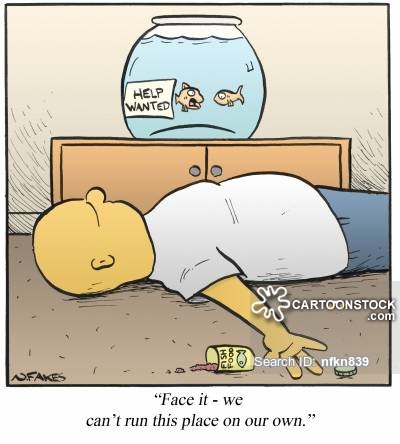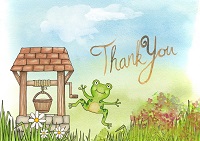Laying The Groundwork
Help Wanted
Here’s something that I think will be really interesting. Lets make a help wanted ad. The idea being to put out a notice of employment for someone that would effectively take your place in your life.
Why? Because I think this will really help us to define ourselves. If we can look objectively at what skills, talents, and attributes are required to be who we actually really are, it might be a real eye opener. It might even give us a deeper appreciation of ourselves.
Here are some guidelines to get us started:
1 – Begin with an attention-grabbing headline.
Use positive language and action-oriented verbs, and include specific details about the position and employer.
For example, a help wanted ad headline reading, “Secretary needed for realty office,” could be more effectively reworded in this way: “Dynamic Executive Assistant needed to organize, manage and oversee office procedures for busy, uptown real estate firm.”
2 – Provide the basics.
Before you get into the more creative aspects of writing help wanted ads, it is important that you provide readers with some basic information that will give them a preliminary idea of what your ad is all about:
- Give your company name and location.
- List the job title, along with specifics like job level, full/part time, temporary/permanent, night/day shift, salary range, application due date and date needed to start.
An example of a suitable help wanted advertising opener would be, “ABC Corporation, located in Capital City, is currently seeking a full-time, entry-level Specialist to assume the night shift on a temporary contract basis. Salary is market-competitive and commensurate with experience. Applications must be submitted by March 1, as this position is expected to start on April 1 and run for a total of 6 months.”
3 – Summarize what you are looking for in an employee.
Qualifications include any expertise that may be required for the job, such as knowledge of computer programming, familiarity with specialized equipment, proficiency within a certain skill-set and or an understanding of job-related terminology.
For example, your help wanted ad qualifications list may read like, “must know how to use basic accounting software, able to use a 10-key with 100 percent accuracy and familiar with billing/coding terms.”
List any formal training requirements. Help wanted ads should include details about college education and/or special certification courses that apply to the position.
Be specific about the type of experience you are seeking in prospective employees. In addition to employment-length guidelines, also include generalized experience requirements. For example, you may say, “Candidates should have at least 2 years of hands-on experience working in the industry, and should be able to prove focused experience in the areas of customer service, recruiting and training.”
4 – Describe what you offer employees.
This is a chance to sell yourself, and should include a number of components:
Say something about your company’s history and/or reputation. For example, you may include something like, “We are the industry-recognized leader in providing customized, effective marketing solutions, in business since 1977.”
Expound on the company culture. For example, you may choose to point out the open-door policy of management, the casual office atmosphere or the importance you place on team building.
Offer details about the benefits of working for you, such as advancement opportunities, insurance, 401K matching, bonuses and incentives plans.
Include a standard equal-opportunity employer disclaimer.
5 -Close your help wanted ad with a call to action.
Instruct interested prospects on how, exactly, to move forward with the application process. You may want them to fax a resume, email a letter of interest or complete an online application.
Provide readers with a contact name, phone number and email address.
I thought this might seem a little daunting, but it was actually a lot of fun. I really encourage us all to do it, and am sharing my ad here because I’m hoping it’ll give everyone some good ideas, and the desire to write one of their own. Feel free to share yours in the comments.
Here’s My Example:
Amazing and talented individual needed to take over for reclusive, anti-social, eccentric artist, blogger, and dropout from society.
Shirley Twofeathers, located in the middle of nowhere USA, seeks a full time worker that is capable of:
- Writing a ridiculous number of posts every day for an overly ambitious website.
- Creating as much cool art as possible from overflowing boxes of art supplies and junk.
- Spending 3 to 4 days a week bathing dogs, cleaning up nasty messes, waiting on customers, answering phones, keeping up with payroll and paper work, and being happy to do it.
- Caring for 2 birds, 4 cats, and a great big dog.
- Minor and not so minor home repairs.
- Outside renovations involving fence building, landscaping, gardening, trash removal, mowing, and more.
- Meeting all family obligations, as well as spending quality time with children and grand children.
Must also be intelligent and interesting, have a sense of humor, be easy to get along with, and fun to hang out with. Great cooking skills would be a bonus. The right candidate will also be someone who enjoys hanging out in grave yards at night, meeting the Spirit of the Corn in a cornfield under a full moon, skipping rocks across a pond, and screaming at the top of their lungs for no particular reason.
This full time position requires overnight stays, an absolute commitment to stick it out no matter what, and comes with these amazing perks:
- A huge library of books, music, movies, and TV shows on DVD.
- A large piece of property to enjoy.
- Bird songs in the mornings.
- A loving family.
The salary is adequate to meet basic needs with enough left over for a few luxuries and some fun stuff.
Shirley Twofeathers was founded in a moment of madness when she decided that it’d be a great idea to come screaming into life with lots of big ideas, and a propensity for epic fails. She pretty much raised herself, and is dedicated to remaining true to that self.
She is an equal opportunity employer, wiling to give just about anything or anyone a chance to prove themselves. If you wish to apply, leave your resume in my mailbox and then tag me on Facebook. Please feel free to leave a comment if you have questions about the position.
Over the cliff
I think it might be interesting to spend a little bit of time exploring our known limitations, and figuring out how they serve us, what their benefits are, and how to work with them instead of allowing them to work against us.
First we need to know what they are. So, this means a list. A list of the limitations in your life that you feel are holding you down. These are the situations and the circumstances that you don’t believe will ever change, or that won’t be changing any time soon. For example:
- Getting old … inevitable, right?
- Physical disabilities …. not everything has a miracle cure.
- Geographical location … it’s not often possible to just pick up and move.
- Education deficits … you lack the degree or the training, and have no means to acquire it.
- Slow learner … not everyone is a genius.
- Not a creative thinker … not every one is.
- Not a people person … let’s face it, you just don’t like people all that much.
Be honest and creative with your list. This is not a judgment list, it’s a truth list. Think of what you’d like to accomplish, have, or do … and then list the undeniable limitations.
For me, it looks something like:
- I am old. Not as strong as I used to be. I am not two, three, or even four people.
- I have to continue to work. I have too many pets. I am reclusive and anti-social.
So now what?
Our limitations don’t really limit us as much as we might think. So let’s not throw the baby out with the bathwater, instead, let’s look for the tiny nuggets of gold hidden in the muck and the mud. In what ways do each of these limitations serve us, how do they help us, what do they do for us?
Here are a few examples:
- Getting old = means lots of life experience, a wealth of knowledge, children and grand children (for some of us)
- Physical disabilities = forces a focus on health, allows more time at home, brings helpers and a support group
- Slow learner = slow and steady wins the race, teaches focus and concentration
This might require some thought, so take your time working your way through your listed limitations looking for the reward or the positive side effect.
And lets get real:
There are a number of things that you would love to be able to do, accomplish, or be that will probably never happen for you. Let’s make a short list of what they might be. My list looks like this:
- Climb an amazing and large mountain… all the way to the top.
- Travel overseas – Wales, New Zealand, Tibet, Siberia… cool places like that.
- Be a black belt in karate.
- Regain my lost youth.
- Have the ability to shape shift into any form, plant, animal or living thing.
- Explore alien planets and meet alien life forms (friendly ones).
- Have my own island, complete with large comfortable home, and all the amenities.
Don’t let your list depress you. And don’t put anything on that list that you think IS a possibility, however remote. We’re just narrowing down the possibilities. And this is helpful because unlimited options can be just as big of a roadblock as not enough options.
This is also true for me when I’m working on a creative project. When I have unlimited resources, I find it’s much harder to come up with something interesting and amazing. When I’m working with not quite enough materials, the art that comes is so much better. I think this might also be true in more practical ways as well. Have you ever noticed that too many choices at a grocery store makes it really really hard to decide what to buy?
And let’s go one step further. Take your list of things that will never happen, and see if there is any way you can tweak, twist, or revise them into something that despite of, or even because of, your limitations, they are indeed possible.
For example:
- I can’t regain my lost youth, but I can enjoy every moment I have left. I can be childlike and excited about every day.
- I can’t climb a mountain, but I can get into good enough shape to go hiking.
- I can’t be a black belt in Karate, but I can take Karate lessons. If I want to…
- I can’t explore alien planets, but I can read and watch Sci Fi, I can paint aliens and alien planets, I can pretend to be an alien… I can paint a closet with day glow paint, decorate it with planets and cool stuff and hang out in there with a black light and some cool music… wow… that does sound fun!
Well, are you ready to get moving on this exercise? I’m going to figure out where I can put my “alien” hangout… LOL. As always, I value your comments and any insights or experiences you’d like to share.
Anger Management
I think it wouldn’t be a bad idea to discover if we are secretly angry with ourselves and self sabotaging because of that. Also, I think it would be good to know if we are internalizing our anger, or alternatively, over reacting and raging.
Being angry isn’t necessarily a bad thing. Anger can have a positive effect. A lot of times, anger tells us we need to take action, and gives us the energy to do it.
I found some online quizzes for us to experiment with:
I also found have this Self-Scoring Quiz:
How Do I Cope With Anger?
Everybody gets angry. But, how do you know if your anger is a real concern? This questionnaire will help you assess your ability to cope with anger and determine whether or not anger management is a problem for you. Please read through each statement, recording the indicated number score for each yes or no response. Your responses should be based on your current temperament.
1. I am quick to forgive others who have harmed or offended me.
(If answer is yes, give yourself 0 points.)
(If answer is no, give yourself 2 points.)
2. It takes me a long time to get over being angry.
(If answer is yes, give yourself 2 points.)
(If answer is no, give yourself 0 points.)
3. I tend to overreact and get angry about little things.
(If answer is yes, give yourself 1 point.)
(If answer is no, give yourself 0 points.)
4. I have taken out my anger on undeserving others.
(If answer is yes, give yourself 2 points.)
(If answer is no, give yourself 0 points.)
5. I have retaliated with anger when another driver has cut me off or tailgated me.
(If answer is yes, give yourself 2 points.)
(If answer is no, give yourself 0 points.)
6. I have said malicious things about others to get back at them when I am angry.
(If answer is yes, give yourself 2 points.)
(If answer is no, give yourself 0 points.)
7. I remain angry or resentful about something(s) that happened years ago.
(If answer is yes, give yourself 2 points.)
(If answer is no, give yourself 0 points.)
8. I have an unresolved conflict with a friend or family member.
(If answer is yes, give yourself 1 point.)
(If answer is no, give yourself 0 points.)
9. I have an unresolved conflict with someone at work.
(If answer is yes, give yourself 1 point.)
(If answer is no, give yourself 0 points.)
10. When I am angry with someone, I am able to tell him or her why.
(If answer is yes, give yourself 0 points.)
(If answer is no, give yourself 1 point.)
11. When something happens that makes me angry, I tend to replay the event over and over again
in my mind.
(If answer is yes, give yourself 2 points.)
(If answer is no, give yourself 0 points.)
12. When I am angry about something that happens at work, it affects me when I am home.
(If answer is yes, give yourself 1 point.)
(If answer is no, give yourself 0 points.)
13. I have someone I can talk to when I feel angry or frustrated.
(If answer is yes, give yourself 0 points.)
(If answer is no, give yourself 1 point.)
14. I often feel regret about how I express my anger.
(If answer is yes, give yourself 2 points.)
(If answer is no, give yourself 0 points.)
Results:
Total your score. If your score is:
0 to 3 points:
Congratulations! Your score indicates that you are coping well with anger. Keep doing what you are doing.
4 to 13 points:
Your score indicates that you may be harboring some resentment or have some difficulty in expressing your anger appropriately. Learning more about anger and the effects of stress will help you avoid problems now and in the future. If you are feeling overwhelmed, talking with a trusted friend, family member or clergy can help put things in perspective.
14 to 22 points:
Your score indicates you are having a great deal of difficulty coping with your anger. Unresolved or pent-up anger always comes out inappropriately, causing harm to others, and increases stress in our life. When we are highly stressed we often lose perspective, overreact to little things and inappropriately vent anger on those we love. You could benefit from learning more about stress and managing anger.
By Drew W. Edwards, MS
© 2000-2004 Lifescape
More thoughts on anger:
Anger is something that everyone experiences, at one level or another, and it needs to be expressed to maintain emotional health and intimacy. Anger is a social emotion. Definitions of anger vary from being a body tension with a cognitive view of the world as being frustrating, irritating, insulting, unfair or assaulting to a literal demand from our internal being to pay attention to our essential needs and then to act accordingly. The biological or evolutionary view of anger is one of preparing the entire organism for rapid response to threatening situations.
Just For Fun
We’ve been working on lots of hard questions, serious questions, relevant questions… how about we do something today that’s just fun…
These questions are from actual job interviews… yes, really! I found them in an article at Fast Company. The article is called 36 Interview Questions That Are Actually Fun To Answer. Here it is:
Job interviews are exciting and anxiety-inducing at the very same time: Landing one means you’ve made it past the initial application stage and into the more exclusive “yes” pile, but it also means preparing for those all-too-familiar questions about your strengths, your weaknesses—yeah, you know the drill.
But what if, halfway through your interview, the hiring manager surprised you with an unexpectedly interesting question—a fun interview question that energized you and got your creative juices flowing? The good news is that hiring managers really are asking questions like this in interviews today, and while they might catch you off-guard, they’ll also give you a chance to loosen up, and the interviewer a chance to learn more about the real you.
So, take some time to think about the interview questions that you’ll actually enjoy answering, like the 36 real-life Qs we’ve gathered here from Glassdoor, Quora, Vault, and FlexJobs. We promise you’ll enjoy practicing your answers to these.
Note: This might be easier if you copy and paste the questions to a text document … or even the comment box … and play around with answering the ones that seem fun and interesting. Don’t worry about answering them all. Just do the ones that seem fun.
- Are you more of a hunter or a gatherer?
- You’re a new addition to the crayon box. What color would you be and why?
- We finish the interview and you step outside the office and find a lottery ticket that ends up winning $10 million. What would you do?
- What do you think about when you’re alone in your car?
- What’s your favorite ’90s jam?
- If you could be any animal in the world, what animal would you be and why?
- What was the last gift you gave someone?
- What were you like in high school?
- What’s the last thing you watched on TV and why did you choose to watch it?
- Any advice for your previous boss?
- Tell me something about your last job, other than money, that would have inspired you to keep working there.
- What is the funniest thing that has happened to you recently?
- What do you want to be when you grow up?
- Which two organizations outside your own do you know the most people at and why?
- Pretend you’re our CEO. What three concerns about the firm’s future keep you up at night?
- If I were to hire you for this job and I granted you three promises with regard to working here, what would they be?
- If you don’t get this job, what’s your backup plan?
- What inspires you?
- Teach me something I don’t know in the next five minutes.
- What are you known for?
- What do you work toward in your free time?
- What’s the most interesting thing about you that we wouldn’t learn from your resume alone?
- How would you rate your memory?
- Code something from scratch in three hours. Then explain your design and solution.
- If you woke up and had 2,000 unread emails and could only answer 300 of them, how would you choose which ones to answer?
- How many pennies would fit into this room?
- Can you name three consecutive days without using the words Wednesday, Friday, or Saturday?
- Estimate how many windows are in New York.
- How would you value the store on the corner?
- How many square feet of pizza is eaten in the U.S. each year?
- Describe the color yellow to somebody who is blind.
- If you were to get rid of one state in the U.S., which would it be and why?
- You’ve been given an elephant. You can’t give it away or sell it. What would you do with the elephant?
- Who would win a fight between Spiderman and Batman?
- How would you convince someone to do something they didn’t want to do?
- A penguin walks through that door right now wearing a sombrero. What does he say and why is he here?
Something Simple
Are you still reeling from yesterday’s post? That Big Ass Character Development Questionaire? I know I am. So today, let’s do something really easy. I thought it would be informative to revisit our very first exercise, and find out if anything has changed.
If you don’t remember it, here it is. Have a piece of paper and a pencil at the ready. Now finish the following sentence with the very first word or words that come into your mind.
I am not …
Now, how many other things can you think of to finish that sentence with? Make a list. Write them down. Write as many as you can think of. As the day goes by, pay attention if you find yourself saying or thinking “I am not …”
Character Development
I thought it would be really fun to fill out this “Big Ass Character Sheet” and really explore ourselves. This sheet was created for writers to help with character development in stories, books, and movies. It occurs to me that something like this might be really nice to have, especially if you have children and grandchildren to pass it down to.
It’s really long. It might be easier to copy and paste it into a text document, and then work on filling out the answers from there. Alternatively, if you have access to a printer, you might want to print it out. If not, be prepared to with your notebook and pen. Don’t expect to get this done all in one day… fill in the easy stuff first, and then go back and work on the longer more interesting answers… stop when you get bored.
Note: Some of the questions may need to be reworded to fit our purposes, for example… “How did you come up with your character’s name”, could be changed to “How did your parents come up with your name?”
Are you ready? Let’s go!
Preliminaries:
- The universe your character belongs to:
- The name of your book, movie, game or whatever:
(Optional for our purposes… but it might be fun to name your life story. - Tag line:
(Ex: “Eight legs, two fangs, and an attitude.”… or … “Trapped in time. Surrounded by evil. Low on gas.”…) - Date:
Names Are Important:
- Full Name:
- Pronunciation:
- Nickname/Alias:
- Meaning:
(If you aren’t sure your character’s name has a meaning look it up, I’m sure you’ll find something. If it’s a fantasy name you made yourself, give it a meaning.) - Origin:
(How did you come up with your character’s name?) - Title:
(Do have a title along with their name?) - Pet Name:
(What do other people call your character? [kid, squirt, babe, etc] May be insulting, endearing, or a combination of both. May have more than one, if other characters call them different things. - ID Number:
(A number that may also be used to identify your character, such as tournaments and prison settings) - Signature:
(What is their handwriting like?)
Masculine/Feminine:
- Gender:
- Gender Role:
(Does your character generally act more feminine or masculine?) - Orientation:
(Ex: Straight, Bisexual, Homosexual)
Days, Dates, and Years:
- Real Age:
(How old your character is in years) - Age Appearance:
(How old does your character look? This is mostly for immortal creatures such as deities, but can be used with anybody. If someone looks older or younger than their age) - Birthday:
- Birthplace:
- Astrological Sign:
(Western – Aries, Taurus, Gemini… etc) - Zodiac Sign:
(Eastern – Year of the Rabbit, Goat, Dragon … etc) - Element:
(Fire/Water/Air/Earth) - Death Date:
(Leave this blank if you don’t know when they will die. You can always fill it in later.) - Age at Death:
- Death Place:
- Resting Place:
(Where is the body of your character now or where will it be put once they die?) - Manner of Death:
(How did your character die?) - Last Words:
Family Matters:
- Immediate Family:
(Who was your character raised by?) - Distant Family:
(The ones they don’t see every day) - Ancestors:
(Who are some important ancestors in your character’s family? Their great great granduncle? Them in a past life? Alexander the Great?) - Parenting:
(Were their parents strict or fun-loving?) - Upbringing:
(What morals and ideals were your characters raised with?) - Birth order:
- Siblings:
(describe relationship) - Spouse:
(describe relationship) - Children:
(describe relationship) - Grandparents:
(describe relationship) - Grandchildren:
(describe relationship) - Significant Others:
(describe relationship) - Infancy (0 to 2 yrs):
(What was it like when your character was a baby? Were they nurtured or dropped at birth?) - Childhood (3 to 12 yrs):
(What was it like for your character growing as a kid ?) - Adolescence (13 to 17 yrs):
( Teen years, peer group experiences, schooling) - Adulthood (18 yrs and older):
(When your character has fully matured. If your character isn’t yet an adult, plan what would happen to them in the future.) - Coming of Age:
(When and how did your character “grow up”?) - Evolution:
(How has your character changed since they were younger?) - Relationship skills:
Physical Characteristics:
- Species:
(Human, animal, or a fantasy race) - Ethnicity:
- Blood Type:
- Preferred Hand:
(Right handed, left handed, or ambidextrous?) - Appearance:
(What does your character look like?) - Facial Type:
(Oval, heart, square, round …) - Eye Color:
- Hair Color:
- Hairstyle:
- Skin Tone:
- Complexion:
- Makeup:
(If any) - Body Type:
(Endomorph, Ectomorph, Mesomorph, or somewhere in between?) - Build:
(Long legs, chubby cheeks, muscular arms…) - Height:
- Weight:
- Cup Size:
- Facial Hair:
- Shoe Size:
- Birthmarks/scars:
- Tattoos/piercings:
- Distinguishing Features:
(Something unique that stands out)
Health Matters:
- Health:
(How healthy is your character?) - Energy:
(How much energy does your character have on a daily basis?) - Memory:
(How well does your character remember things, and what do they remember?) - Senses:
(Are any of your character’s senses better or worse than others?) - Allergies:
- Handicaps:
(A limp, deafness, missing an eye… etc) - Medication:
(What medications does your character take, if any?) - Phobias:
(Things that simply terrify your character. May be trivial or debilitating. Try to have at least one.) - Addictions:
(Drugs, alcohol, gambling, or bad teen romance) - Mental Disorders:
(Depression, Bipolar Disorder, Paranoia, OCD, etc.)
Style Matters:
- Style:
(The overall style your character shows, not just limited to clothing. Ex: Punk, Goth, Nerd) - Mode of Dress:
(Don’t describe their clothes here. Describe how they wear their clothes. Two people can wear a suit, but each will wear it differently. Ex: Is the shirt tucked in?) - Grooming:
(Well-kept or messy?) - Posture:
(How does your character present themselves? Ex: Stiff, slouchy, suggestive) - Gait:
(The speed and style which how your character moves) - Coordination:
(How physically fit is your character? Also add things like reflexes, ect.) - Habits and Mannerisms:
(Any nervous ticks or unconscious habits your character might have. Ex: Nail biting, crosses arms, or twirls hair) - Scent:
(What does your character smell like? Good or bad? How strong?)
Emotional Matters:
- Mood:
(What mood are you most likely to catch your character in?) - Attitude:
(How does your character interact with others?) - Stability:
(How emotionally consistent are they?How much emotional stress can your character take before they break? Lots? None at all? Negative amounts? ) - Expressiveness:
(Do they hide emotion or let it out openly?) - When Happy:
(Ex: Whistles, sings, skips) - When Depressed:
(Ex: Locks themselves in their room, listens to music, hugs a stuffed animal) - When Angry:
(Ex: Punches walls, screams at people, trolls online, Note: These are generalizations. Different situations will create different reactions.) - Humor:
(What does your character think is funny? Blond jokes? Death? Farting?)
The Larger World:
- Current Residence:
(Where does your character live right now? May or may not include a geographical location) - Community:
(What does the general population act like where your character lives?) - Family:
(Parents, children, siblings – Include step families if it applies, and label as such.) - Friends:
(Who does your character like to hang out with? Who does your character feel safe with and could trust in a time of need?) - Allies:
(Who or what company does your character and/or their company work with or fight alongside?) - Enemies:
(Who does your character despise? Who is it that your character is always fighting or that they have set out to destroy?) - Bosses:
(Who does your character answer to?) - Followers:
(Who answers to your character? Who follows your character and is inspired by them or tries to copy them?) - Heroes:
(Who does your character look up to?) - Rivals:
(Who is your character on good terms with, but is constantly in direct competition with?) - Relates to:
(Who is similar to your character?) - Pets/Familiars:
(Describe a pet your character owns, real or fantasy and give it a name.)
Material Matters:
- Wardrobe:
(Describe your character’s closet. What is their formal, casual, or other kind of wear?) - Equipment:
(Refers to tools or weapons your character may use. Ex: A sword for a warrior) - Accessories:
(Jewelry, glasses, etc.) - Trinkets:
(Applies to but not limited to good luck charms, purses, watches, or any other items they carry with them almost all the time.) - Funds:
(How much cash does your character have on hand, and how much at home/in the bank?) - Home:
(What is your character’s house like? Describe it’s overall appearance, type of house, and describe things such as the yard, wallpaper, or any other information. Things like bedrooms count as your character’s home.) - Neighborhood:
(What are the people and places near your character like?) - Transportation:
(How does your character get around?) - License Plate Number:
(Can be regular numbers, or something more creative. Adjust for your country.) - Collections:
(Does your character like to hoard or collect anything?) - Most valuable possession:
(In terms of money) - Prized Possession:
(What object does your character value above all else?)
Relationship Matters:
- Lovers:
(From childhood crushes, to exes, to a married partner, who does your character love?) - Marital Status:
(Single, Taken, Dating, Available) - Sex Life:
(Active, passive, kinky, energetic, non existent… etc) - Turn-Ons:
(What does your character want to see in their ideal mate?) - Turn Offs:
(What tends to make them back off)
Work Matters:
- Occupation:
- Work Ethic:
(How hard does your character work? How do they feel about their job?) - Rank:
(How high up are they on the corporate ladder?) - Income:
- Wealth Status:
(How well financed is your character? Ex: Upper, middle, or lower class) - Experience:
(Include things like pasts jobs, or things that contributed to current occupation.) - Organizations/Affiliations:
(Who does your character side with?)
Educational Matters:
- Education:
- School:
(What was their school like?) - Grades:
(What grades would they get?) - Special Education:
(Did they ever get held back or get honor roll?) - Social Stereotype:
(Nerd, goth, punk) - Degrees:
(What degrees did/would they earn in school?) - Extracurricular Activities:
(Such as P.E. or art) - Study Habits:
(How often does your character study and how thoroughly? Every free hour? Not at all? They have someone else study for them somehow?) - Learning Type:
(Is your character a Auditory, Visual, Kinesthetic learner?)
Intelligence:
- IQ:
- Logical-Mathematical:
(How well can your character use reason and logic in their thinking?) - Spatial:
(How well can your character create an image in their mind?) - Linguistic:
(How good is your character with words, written and spoken? - Bodily-Kinesthetic:
(How well does your character control their body motions, how well do they handle objects? How clear is their sense of goal of physical action?) - Musical:
(How clear is your character’s perception to sounds, music, tones, and rhythms?) - Interpersonal:
(How well does your character interact with and understand others?) - Intrapersonal:
(How well does your character understand their self?) - Naturalistic:
(How well does your character understand their natural surroundings?) - Existential:
(How well can your character understand phenomena or questions beyond sensory data?)
Right and Wrong:
- Religion:
- Morals:
(What does your character find morally right or wrong?) - Crimes and punishments:
(Relationship with authority, laws broken, and crimes committed.) - Motivation:
(What moves your character? Power, money, love…) - Priorities:
(What does your character place first, second, and third?) - Philosophy:
(Your character’s outlook on life) - Political Party:
(Democrat, Republican, Liberal, or Conservative) - Etiquette:
(How good our your characters manners? Do they bow or chew with their mouth open?) - Culture:
(Any things your character may or may not do that is specific to a certain culture. Do your research on this one or you could offend people. ) - Influences:
(Who or what inspires your character to change? Do they influence anyone else?) - Relates to:
(Who can your character relate to?) - Traditions:
(Does your character sit around the table with their family? What holidays do they celebrate?) - Superstitions:
(Spilling salt, knocking on wood)
Driving Forces:
- Main Goal:
(Driving force in the story. May be subject to change.) - Minor Goals/Ambitions:
(What is your character trying to accomplish?) - Career:
(What would be your character’s dream job?) - Desires:
(What does your character want?) - Wishlist:
(What material items does your character want?) - Accomplishments:
(Did they succeed in any goals?) - Greatest Achievement:
- Biggest Failure:
- Secrets:
(Everyone has at least one) - Regrets:
- Worries:
- Best Dream:
(What would be the best thing that could possibly happen to your character?) - Worst Nightmare:
(The worst thing that could ever happen?) - Best Memories:
(A few stand out memories from the past – keep it short and sweet.) - Worst Memories:
(A few stand out memories from the past – keep it short and sweet.)
Quirks and Characteristics:
- Hobbies/Interests:
(What does your character like to do for fun?) - Skills/Talents:
(Similar to hobbies, but refers to the level of skill a character has.) - Likes:
(What does your character like?) - Dislikes:
(What can’t they stand?) - Sense of Humor:
(Dark/dry/witty/sarcastic/dirty/childish/sophisticated/ironic) - Pet Peeves:
(Similar to dislikes, only more relating to human behavior than specific objects. Ex: When people tap on things or when people say “You’re not fat!” when you really are.) - Superstitions/Beliefs:
(Does your character believe in conspiracy theories or aliens? Do they throw salt over their shoulder or knock on wood?) - Dreams/Nightmares:
(What do they dream about – at night.) - Quirks:
(The strange little things that your character does to make them unique. Ex: Sleeps with their feet on the pillow or runs their hand along a pole as they walk beside it.) - Savvy:
(What is your character particularly well-informed of?) - Can’t understand:
(Something they just can’t get into, such as English literate or obsession with sports.) - Closet Hobby:
(Something that your character likes but isn’t too obvious.) - Guilty Pleasure:
(You know…)
Strengths and Weaknesses:
- Strengths:
(What makes them stand a bit above the crowd? Ex: Courageous, good listener, calm under pressure. Not supernatural abilities.) - Flaws:
(Refers to negative personality traits, not a weakness. Make sure it’s a deep flaw that could actually affect your character, not something trivial like “She can’t dance”.) - Fatal Flaw:
(That one thing rises up to bite them in the ass at the worst possible moment. A quality within the character that is both good and bad. It could save their life…or be their downfall.) - Perception:
(How does your character generally see the world?) - Conflicts:
(What issues make your character want two things, but they can’t have both?) - Instincts:
(What they are unconsciously driven to do) - Lures:
(What are they inexplicably drawn to be near? Power, money, the helpless …) - Soft Spot:
(Their vulnerability, what they feel sorry for or have particularly good feelings toward.) - Cruel Streak:
(What makes a character act against their usual morals, and act especially mean? Everyone has something that can do this to them.)
Supernatural Matters:
- Powers/Abilities:
(Here is where to put any superhuman powers and other abilities your character possesses. Be sure to balance them out with weaknesses, or your character loses credibility. This section may be optional depending on what genre you write.) - Origin:
(How did they get their powers?) - Source:
(How do they use their powers? Ex: shoots fire from hands, can read minds with their ring…) - Ability:
(How adept are they at using said powers? - Weaknesses:
(Make it something that your character exclusively is weak to, and keep it credible. A 4-headed radioactive dinosaur is not a credible weakness.) - Immunities:
(Ex: cannot be burned. Be very careful with this one.) - Restrictions:
(An absolute necessity for those with supernatural powers. Ex: Can only breathe fire when angry or can only cast darkness spells twice a day.) - Alternate Forms:
(Transformations, shape shifting abilities, dark side, etc.) - Extra Anatomy:
(Such as wings, tail or a third eye …)
Favorites:
- Favorite Colors:
- Favorite Animals:
- Favorite Mythological Creatures:
- Favorite Places:
- Favorite Landmarks:
- Favorite Flavors:
- Favorite Foods:
- Favorite Drinks:
- Favorite Characters:
- Favorite Genre:
- Favorite Books:
- Favorite Movies:
- Favorite Games:
- Favorite Shows:
- Favorite Music:
- Favorite Bands:
- Favorite Songs:
- Favorite Sports:
- Favorite Stores:
- Favorite Subjects:
- Favorite Numbers:
- Favorite Websites:
- Favorite Words:
- Favorite Quotations:
(Can be lengthy and philosophical or just simple clichés such as “Every dog has his day)
Least Favorites:
- Least Favorite Colors:
- Least Favorite Animals:
- Least Favorite Mythological Creatures:
- Least Favorite Places:
- Favorite Landmarks:
- Least Favorite Flavors:
- Least Favorite Foods:
- Least Favorite Drinks:
- Least Favorite Characters:
- Least Favorite Genre:
- Least Favorite Books:
- Least Favorite Movies:
- Least Favorite Games:
- Least Favorite Shows:
- Least Favorite Music:
- Least Favorite Bands:
- Least Favorite Songs:
- Least Favorite Sports:
- Least Favorite Stores:
- Least Favorite Subjects:
- Least Favorite Numbers:
- Least Favorite Websites:
- Least Favorite Words:
- Least Favorite Quotations:
(Can be lengthy and philosophical or just simple clichés such as “Every dog has his day)
Language Matters:
- Languages:
(What languages does your character speak and how fluently?) - Accent:
- Voice:
(High pitched, low pitched…) - Speech Impediments:
(Stutters, slurs, or whistles…) - Greetings and Farewells:
(How does your character say hello and goodbye?) - State of Mind:
(Ask your character “how are you” and see how they respond.) - Compliment:
(Have your character say something nice.) - Insult:
(Have your character insult someone.) - Expletive:
(Can be an actual curse word – like “Dammit” or some kind of substitute – like Darn it!) - Laughter:
(What does your character’s laugh sound like?) - Tag Line:
(Something your character says a lot in everyday sentences. Can often be filled with a sound or vocalization. Ex: Lol, dude, uh…) - Signature Quote:
(Something significant your character says. Doesn’t have to be meaningful, just make it memorable.)
What do other people think?
- Reputation:
(How is your character viewed by their peers? Are they held in high esteem? Do they think he’s pure stupid? Do they think he’s an alien?) - Status:
(What is their social status? Quiet? Popular? Dead?) - First Impressions:
(What would you first think of this character upon meeting them?) - Stranger Impressions:
(If someone was told about the character but didn’t know them, what would they think?) - Friendly Impressions:
(What do people who are friends or acquaintances of your character think of them?) - Enemy Impressions:
(What do people who can’t stand your character think? If you can’t think of anyone who hates your character, we have a problem.) - Familiar Impressions:
(What do people very close to your character think of them? Ex: Family, lovers) - Compliments:
(What are some good things other people would say of your character? Ex: heroic, good listener) - Insults:
(Would anyone like to call your character a whore, jerk, or stupid?) - Self-Impression:
(What does your character really think of themselves deep down?)
Temperaments and Types:
- MBTI Personality Type:
(Ex: ENTP, ISTJ, – if you aren’t sure, try this test at Human Metrics) - Temperament:
(Chloric/Sanguine/Melancholic/Phlegmatic – May also be called color types, such as yellow, red, blue, or green) - Enneagram:
(The Reformer/The Helper/The Achiever/The Individualist/The Investigator/The Loyalist/The Enthusiast/The Challenger/The Peacemaker) - Ego/Superego/Id:
(Superego is aims for perfection, society, and the idea of right and wrong. Id is unconscious desires and instincts – Which of these are they most driven by? - The Self:
(The center/core of your character) - The Shadow:
(The opposite qualities your character themselves does not believe they possess, but do subconsciously) - The Anima/Animus:
(The part of the character of the opposite gender) - Persona/Mask:
(What they present to the world, or the side they use to protect themselves)
Role Playing:
- Role:
(What purpose does your character serve? Mentor, leader, follower? ) - Fulfillment:
(How well do they serve that role?) - Significance:
(Why does your character matter?) - Alignment:
(Good/Evil/Neutral/Lawful/Chaotic) - Comparison:
(Compare your character to some kind of animal, object, or anything else you can think of.) - Symbol:
(Does your character have any kind of recurring symbol that represents them? Ex: a rose, a black cat, a sunset. Could be blatant or subtle.) - Song:
(A song you think best suits your character) - Vice:
(Pride/Greed/Gluttony/Lust/Envy/Sloth/Wrath) - Virtue:
(Patience/Diligence/Chastity/Temperance/Charity/Kindness/Humility) - Defining Moment:
(This is it. The single greatest moment of your character, when they truly become alive.) - Tropes:
(What about your character is stereotypical or cliched? You can’t say nothing. Every character has some kind of cliche in them.) - Originality:
(What makes your character different from one like them? - One Word:
(Use a single adjective to sum up your character in a nutshell)
Wow… I don’t know if I’ll ever get this filled out. As I was working on this post, it occurred to me how fun it would be if we could just feed our answers into a computer and get a print out that tells us how to be happy and succeed in life, exactly what we need to do, how when and where to do it.
Simple Pleasures
We have been working hard exploring the not so comfortable aspects of our selves and our experiences. I think it might be nice to take some time to think about what brings us happiness, the little feel good things, the simple pleasures that we enjoy right now…. when we allow ourselves to, that is.
I’d love to see our lists get really long with this one, so I’ve come up with some ideas to get us started:
- Morning pleasures … what feels really good first thing in the morning?
- Evening pleasures … what do you love to do in the evening?
- Outside pleasures … how many things can you think of that you love to do outside?
- Inside pleasures … fun and pleasurable activities for inside, what are they?
- Seasonal pleasures … Winter, Spring, Summer, Fall…. what feels good in each of the seasons?
- Social pleasures … what you really love doing with friends and family.
- Childish pleasures …what you enjoyed as a child… and still enjoy today.
Here are some of my simple pleasures, just in case you’re feeling unsure of what to write.
- An ice cold beer on a hot summer day.
- A hot cup of campfire coffee while cuddled up in a blanket outside watching the sun come up.
- Cranking up the music and rocking out to Buddy Holly.
- Finger painting and making a huge mess.
I don’t know about you, but the simple act of writing this list inspires me to get up and do some of these things!
Stuck?
Sometimes we just feel stuck. I think it’s important to pay attention to the places where we feel stuck. If you have identified areas in your life where you feel stuck, here are some questions worth asking:
- Am I really stuck? Or am I just waiting?
- What am I waiting for? The other shoe to drop?
- Am I waiting for help? For answers?
- If I’m not waiting, could it be that I am resisting?
- What am I resisting? Why would I resist that?
- Why wouldn’t I resist that?
- What if I’m not stuck at all? What if I’m just resting?
- Do I need to take a nap? Am I just tired?
- Am I being pulled in opposite directions?
- Who is pulling me? And why?
- Maybe I really am stuck… glued down, even, what about that?
- Am I a prisoner here? Do I need to plan a prison break?
- Do I need a parole? A pardon? A passport?
- Should I make a battering ram? Find some dynamite?
- Maybe I like it here and I’m not stuck at all, what about that?
Slave Drivers
We all have uncomfortable feelings that drive us mercilessly, and I’m not talking about the feelings stop us dead in our tracks – that’s for another day. I’m talking about those not so pleasant feelings that get us moving, and doing. For example:
- Worry (I didn’t want to … but I did it because I was worried about …)
- Guilt (I did it … because I knew I should … or I didn’t want to get caught with my pants down… etc.)
- Fear (I didn’t want to … but I did because I was afraid that …)
- Rage (I got so angry I just …)
These are my primary ones, I’m sure you can think of some more. So let’s figure out how to use them, instead of letting them use (and abuse) us.
The first step is to pick the one (or ones) that shows up for us almost every day. Are you constantly worrying about things? Do you carry a lot of guilt? Are you afraid? Angry?
For me, worry is always a big one. I can worry at any time about anything. If I plant a seed in a pot I worry did I plant it too deep? Maybe it’s not deep enough. Did I water it too much? Maybe I didn’t water it enough? Does it need sun? Shade? Is the soil right? What if the soil isn’t right? Is it too cold? Is it too hot? Is it going to sprout? When is it going to sprout? What if it doesn’t sprout? Shouldn’t it have sprouted by now?
Maybe you can relate to that, maybe for you it’s something else. What ever it is, there’s a reason why this feeling drives you. There is a really good reason why it’s such a looming presence in your life. Let’s see if we can figure out what that is. See if you can think of all the ways in which it benefits you.
If I take my example of worry, I can say that it serves me well because it helps me to make sure that I do things in the best possible way. My seeds are likely to sprout and do well because I fuss over them and pay attention to what they might need.
Fear is another example, it keeps me safe – most of the time anyway. Some fears are irrational, like my fear of heights. On the other hand, I have never fallen off of a roof and broken my neck! So there’s that.
Once you’ve figured out what your slave drivers are, and how they benefit you, it’s easier to make friends with them. And having made friends, it becomes a much healthier relationship. It feels so good when I can say to my old pals, Worry, Guilt, Fear, Rage:
“Hi guys! I see that you’ve decided to join me today. What’s up? Want a sandwich? A nice cold beer? Are you coming with me to work today?”
Give Us A Push
Today I thought we could explore motivators that work. How do we know they work? Because they have worked for us in the past. In my experience these fall into two categories.
- Things we didn’t want to do, but did anyway.
- Things we wanted to do, and stepped out of our comfort zone for.
So lets start with a list of things we didn’t want to do, but did anyway. And let’s not stop there. I think it would be really super helpful to find out why we did it anyway. What was it that gave us that added push?
For example:
- I didn’t want to go to work Wednesday morning, but I went anyway because my daughter was counting on me, she needed me, and she would have been really disappointed and upset with me if I had let her down.
- I wanted to go to a concert with my granddaughter, so I stepped out of my comfort zone … bought Lady Gaga tickets (scary – I’m not sure why), agreed to drive downtown (yikes!), and eat at an unknown restaurant (way out of my comfort zone) … Why? Because I didn’t want to disappoint her. And also because I found someone who was willing to help pick out the best tickets, do the driving, and find a good restaurant.
Interestingly, for me, both examples have to do with making someone else happy. What does this tell me? That if I can find a way to include someone else’s happiness or comfort, I can get myself do quite a few things that would otherwise be really difficult for me to make myself do.
A Few More Ideas:
Other things that might motivate me to do what I don’t want to do might include:
- Desperation
- Fear
- Anger
Other motivators that might push me out of my comfort zone into new experiences might include:
- Curiosity
- A Challenge (for example… if someone said “You can’t …”)
- Too much coffee…. LOL
So, guys… Let’s get started on our lists, and see what we can find out about what gets us up and out of bed in the morning, and keeps us keeping on even when we’d rather not.
- Radical Self Care Project Overview by shirleytwofeathers - No Comment
- Radical Self Care Image Gallery by shirleytwofeathers - No Comment
- It’s A Wrap by shirleytwofeathers - 3 Comments
- Something To Consider by shirleytwofeathers - 1 Comment
- Nurturing Your Precious Self by shirleytwofeathers - 3 Comments
me: Make Your Own Violet Fire
Abdulrahman: Money Chant – Very Fast
Shirley Twofeathers: It’s A Wrap
Daniel Knirs: It’s A Wrap
Shirley Twofeathers: It’s A Wrap
















